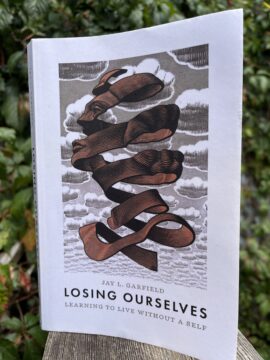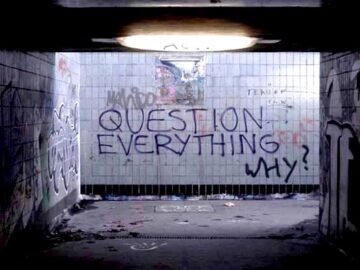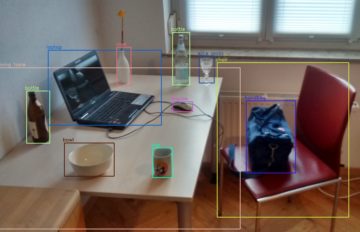by Jochen Szangolies

The principal argument of the previous column was that without the possibility of making genuine choices, no AI will ever be capable of originating anything truly novel (a line of reasoning first proposed by science fiction author Ted Chiang). As algorithmic systems, they can transform information they’re given, but any supposed ‘creation’ is directly reducible to this initial data. Humans, in contrast, are capable of originating information—their artistic output is not just a function of the input. We make genuine choices: in writing this sentence, I have multiple options for how to complete it, and make manifest one while every other remains in the shadow of mere possibility.
This is of course a controversial proposition: just witness this recent video of physicist Sabine Hossenfelder making the case for free will being an illusion. In particular, she holds that “the uncomfortable truth that science gives us is that human behavior is predetermined, except for the occasional quantum random jump”. I think this significantly overstates the case, in a way that ultimately rests on a deep, but widespread misunderstanding of what science can ‘give us’—and more importantly, what it can’t.
Before I make my argument, however, I feel the need to address an issue peculiar to the debate on free will, namely, that typically those on the ‘illusionist’ side of the debate consider those taking a different stance to do so coming from a place of romantic idealization. The charge seems to be that there is a deep-seated need to feel special, to be in control, to have authorship over one’s own fate, and that hence every argument in favor of the possibility of free will is inherently suspect. I think this is a bad move. First of all, it poisons the well: any opposing stance is tainted by emotional need—just a comforting story its proponents tell themselves to prop up their fragile selves. (Hossenfelder herself describes struggling with the realization of having no free will.)
But more than that, I just don’t think it’s true—disbelief in free will can certainly be as comforting, if not more so. After all, if I couldn’t have done otherwise, I couldn’t have done better—I did, literally, my best, with everything and always. No point beating myself up about it afterwards. Read more »

 We’re living at a time when the glorification of independence and individualism is harming the world and others in it, as well as leading to an epidemic of loneliness. According to Jay Garfield, the root of suffering is in our self-alienation, and one symptom of our alienation is clinging to the notion that we are selves. “We are wired to misunderstand our own mode of existence,” he writes in his brief yet substantial 2022 book,
We’re living at a time when the glorification of independence and individualism is harming the world and others in it, as well as leading to an epidemic of loneliness. According to Jay Garfield, the root of suffering is in our self-alienation, and one symptom of our alienation is clinging to the notion that we are selves. “We are wired to misunderstand our own mode of existence,” he writes in his brief yet substantial 2022 book, 

